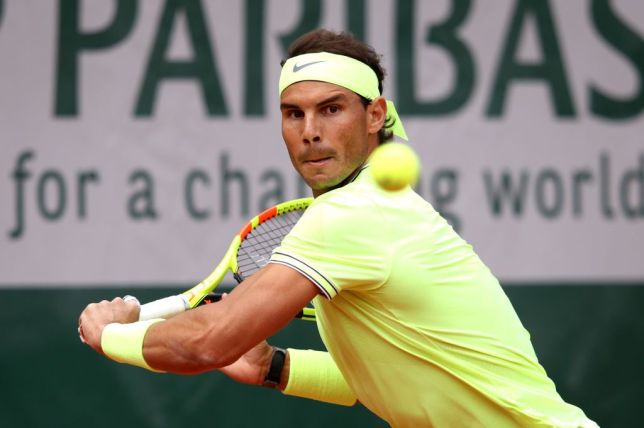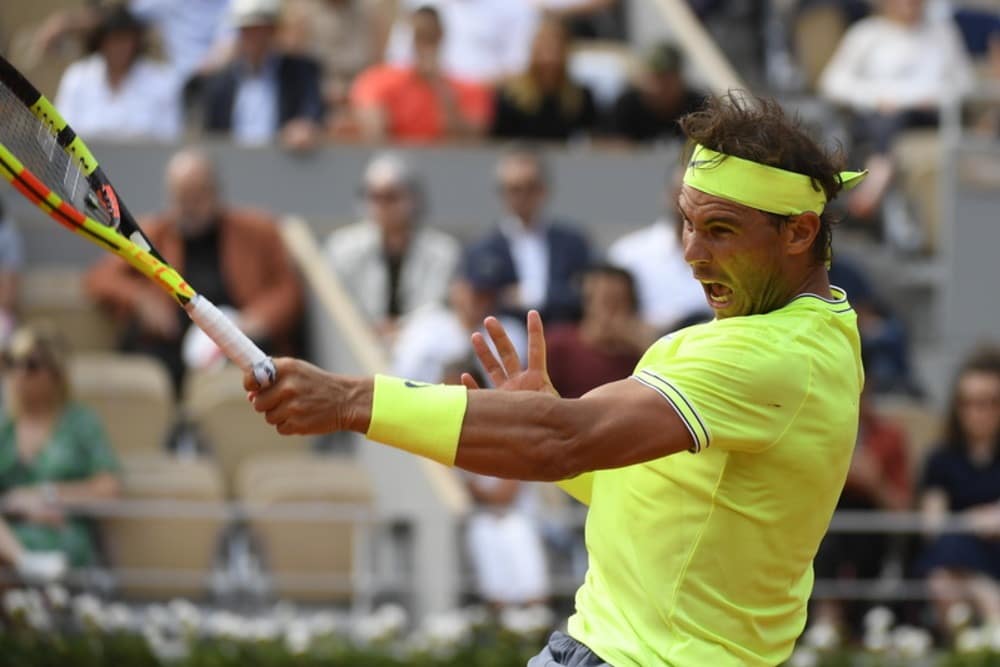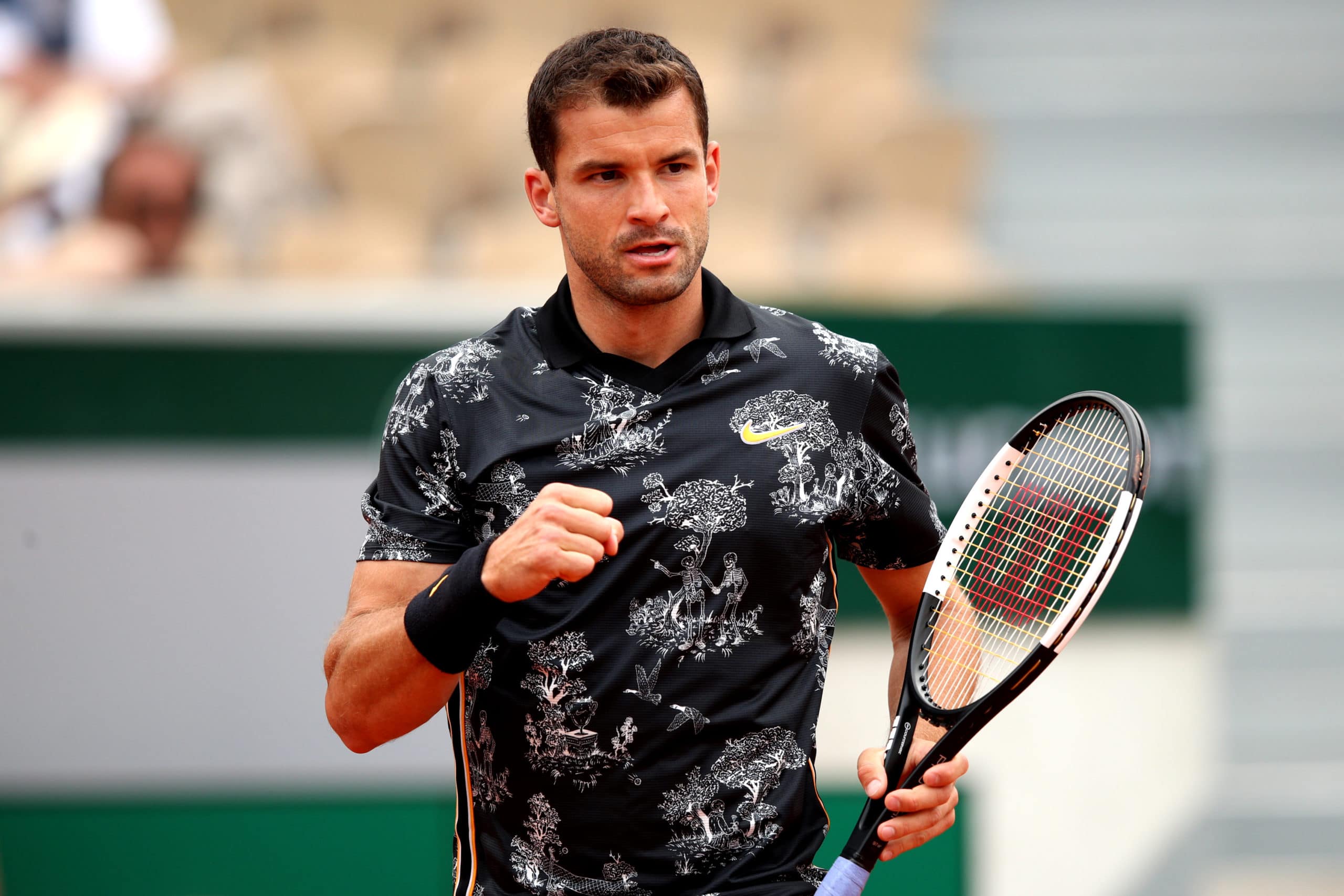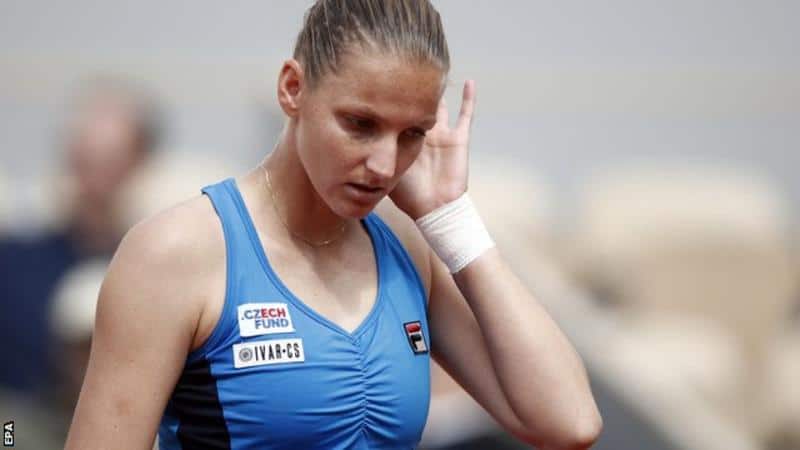WAWRINKA V TSITSIPAS: DEEP DIVE

2015 RG champion Stan Wawrinka meets rising star Stefanos Tsitsipas in round four.
In their first ever meeting, three time Grand Slam champion Stan Wawrinka and rising star 20-year-old Stefanos Tsitsipas are sure to produce a thrilling display of beautiful tennis in the fourth round at Roland-Garros on Sunday.
Here’s a look at the talking points surrounding that match-up and where the clash can be won or lost.
Talking points
Veteran v Rising star
With no history between the pair, it is the classic meeting of experience versus a wunderkind playing without fear or baggage.
Tsitsipas has displayed an impressive consistency this season and has been particularly notable on clay.
Can he continue by beating Wawrinka, and reach the quarter-final where he is projected to meet Roger Federer? Can he match his best Grand Slam performance by reaching the semi-finals, where he is projected to meet the ‘King of Clay’, Rafa Nadal, who he has already beaten on clay this season? Sunday’s match against Wawrinka will be a fascinating marker.Play Video
After a long, tortuous and patient return from knee surgeries, Wawrinka has his confidence back – and as the 2015 champion and 2017 runner-up here, Roland-Garros is like a home Grand Slam for the Swiss.
Wawrinka has a long track record of getting stronger and stronger as a tournament plays out. His inclination to go for winners means his radar can dip in and out; if Tsitsipas doesn’t take advantage of his unforced errors, it’s going to be even more difficult as experience will give Wawrinka the edge on the points that count.
Style via social media
Wawrinka, with his nice and often extensive line of emojis, features tennis – and often patisserie. His hashtags reveal a heartfelt appreciation of his “second career” in tennis, following his injury doldrums. #trusttheprocess sums up his patience. Otherwise it’s all #love #support #fans #grateful #thankyou #seeyoutomorrow #paris #tennis.
Tsitsipas, meanwhile, has a parallel career documenting his travels via vlogs on his YouTube channel, which suggests a youthful hunger for new experiences.
His Twitter feed sees him frequently post philosophical quotes, suggesting he has a healthy perspective on his ambitions in tennis and enjoys learning as he goes along. Nothing ventured, nothing gained and all that.
They’re no strangers to one another
The pair have never played a competitive match, but Wawrinka revealed he has had a few practice hits with the young Greek.
“He’s an amazing player, for sure. He’s really young, and already beating the top players. He has improved a lot. He’s winning a lot of matches and making his way to an even better career for a long time, for sure. It’s been very impressive to see his evolution. He’s been able to beat Roger in a Grand Slam, Rafa on clay. So it’s going to be a tough match, a great match, and I am happy to face this challenge.”Play Video
In practice, Wawrinka noticed he plays “a heavier ball” than what you see on TV.
“When you watch him play, you think he’s playing a little bit slower than how he plays in real life. He always looks like he gives himself a lot of time to play. He doesn’t seem to feel under pressure. Since I never played him in a match, that’s what I base my assessments on with respect to the practices I had with him,” explained the three-time Grand slam champion.
Meanwhile, Tsitsipas says of Stan: “I know he has been struggling with some injuries, and he had a serious operation recently, so to me, it seems like he has found his form, his game. And as we all know, he did quite well at Roland-Garros plenty of times, not just once. He’s a dangerous player. He knows clay very well. He has a big game.”
Form on clay
Statistics favour Stef
Wawrinka has a 7-4 year-to-date win-loss record to Tsitsipas’ 15-4.
In their respective careers, the Greek has won 68.4% of his matches on the red stuff, compared to the 34-year-old Swiss champion’s 66.8%.
Momentum on clay this year
After two early hiccups (losing to Jan-Lennard Struff in the round of 16 in Barcelona and at the same stage to Daniil Medvedev in Monte Carlo), Tsitsipaswon his first clay-court title in Estoril. In Madrid, he beat top players – Alexander Zverev in the quarter-finals, Nadal in the semis – before losing to Djokovic in the final. In Rome, he beat the Monte-Carlo champion Fabio Fognini, earned a walkover from Roger Federer and lost in Rafa’s clinical revenge semi-final.
It had been a slow road back for Wawrinka after knee surgeries. Following three straight losses on clay before Paris, the Swiss took four sets to defeat Jozef Kovalik in the first round at Roland-Garros, and considered his routing of clay-court dark horse Cristian Garin in the second round for the loss of five games “the most complete” match of his past few months. Defeat of Dimitrov was a key confidence-booster; there is now conviction behind his signature play.
“I have only won three matches here, and I’m not totally satisfied with that type of result. In my vision of the end of my career, I want more, and I hope I’ll be able to continue,” said Wawrinka.
At the Slams
Comparing a 34-year-old’s career with a 20-year-old’s is really a measure of experienced achievement versus a stellar early showing. For the record, even with his recent ups and downs, Wawrinka has the more impressive statistics with a 72.6% career win-loss record at the majors (compared to Tsitsipas’s 65%) and scores 75.9% to the young Greek’s 71.4% at Roland-Garros.
Wawrinka has lifted three major trophies: Australian Open 2014, Roland-Garros 2015, US Open 2016, while Tsitsipas’ best showing at a slam was making the semis in Melbourne in January.
Where it could be lost/won
This will be a match of attrition which simultaneously promises to conjure a display of aesthetic combat. The question is, who will assert their potent weapons most effectively?
Wawrinka’s one-handed backhand is one of the wonders of the modern tennis world. His ability to unleash it at often the most key moments is a potent weapon. Ditto, his ability to fire a double-figured tally of aces in any match. His forehand, too, is a weighty shot when on target.
Tsitsipas’s likes to dictate with his topspin forehand and when he has a chance to follow this shot to the net. He likes to play offensively, to take the game to his opponent. He also has a one-handed backhand.
Nadal achieved his revenge win over Tsitsipas in Rome by targeting the Greek’s backhand to open up the court, and also bringing buckets of energy, confidence, depth and aggression to court. Wawrinka has these qualities in resurgent form, but can he deliver with consistency?





